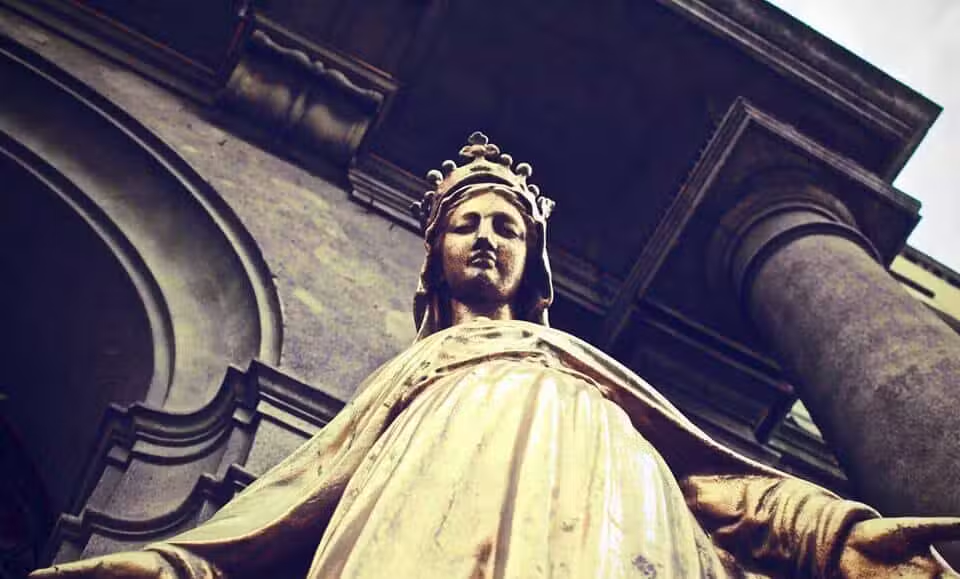If the last few years have taught us anything, it’s learning or relearning how to slow down. We begin to learn the richness of waiting, of slowing down, of looking and listening, allowing the world around us and within us to work on us. We begin to understand what it means to receive what is being offered to us every day: the lovescape of God’s handiwork within and around us. We begin to see and hear as we did as a child.
This is especially true when we feel helpless to do anything to change our circumstances. We begin to just be. And at some point from within comes the voice,
Be still and know that I am God.
Be still and know that I am.
Be still and know that I…
Be still and know that …
Be still and know…
Be still and…
Be still.
Be.
This is the progression of contemplation, and it takes a lot of time and waiting to get to the final injunction, “Be.” Every year for the past ten years I have entered into a hermitage for a time, usually three months. I wait and pray and write, trying to enter the silence of my solitude. But it has taken the coronavirus pandemic for me to see how far I still am from simply being. I keep trying to do something, to at least leave the hermitage and travel home to the friary, even when it’s still not safe to travel. I keep trying to go home to my friary because it’s time to do so. But I am forced to wait, to be, instead of to do.
How much is revealed about who we really are when we are forced to wait, especially when we’re not sure what we’re waiting for. Is that what Mary was doing – just waiting and praying – when the undreamed of annunciation happened: Gabriel invading her private waiting, announcing that the Lord was with her? She was being told that whoever it was she was waiting for was greater than she imagined and was already there: the Word of God.
And Mary says, “Be it done unto me according to your word.” It’s interesting that Mary says, “your word,” and not “your will.” But of course it was the words of God she was hearing in the words of Gabriel. But it was more than those words speaking; it was the Word, the Second Person of the Blessed Trinity. And in Franciscan theology the emphasis on the Word of God in the Incarnation is central, especially in the theology of the great medieval Franciscan theologian, St. Bonaventure.
As contemporary Franciscan theologian Ilia Delio writes: [Bonaventure] emphasized that it is the Word who became flesh and not simply “God.” Often, we hear the Incarnation described as “God becoming human” but Bonaventure clarifies this by affirming that it is the Word of God that takes on our humanity. . . . [E]verything that exists in creation is grounded in the Word of God (and not in the Father or Spirit)…. [H]e describes the Incarnation as the work of the Trinity insofar as the entire Trinity is focused in the Word who takes on our humanity (Ilia Delio, OSF, Simply Bonaventure, 2nd Edition, New York: New City Press of the Focolare, 2013, p. 86).
And now this Word of God, the second Person and center of the Blessed Trinity was waiting for Mary, for her response to be mother of the Word, the Son of God, who wills to be born in and through her. God needed only her consent to let it be, this tremendous miracle of Grace: the enfleshment of God in and through her womb. And to her question of how this was to be, the Angel Gabriel answers that the Holy Spirit would come upon her. And Mary answers, as all her prayer of silence and waiting prepared her for:
“Be it done to me according to your word.” So it was for Mary, so it can be for us who wait in silent prayer seemingly unable to do anything to change our circumstances. We choose to be and let God do.
We can choose to let the Holy Spirit work, let the Holy Spirit come upon us that the Word might be born again in and through us. We can be still, and let the Word send down His Spirit. No angel may appear, no words heard with our ears, but something happens within, an inner hearing of something we know we have to respond to. We hope we can say yes, even when it seems unrealistic or foolish to those who cannot see and cannot hear the Word of God available to those who believe in and love God.









3 thoughts on “Holy Mary: Model of Patience”
I love this. I thank our dear Mother Mary every day for saying “Yes”. Where would
we be without her saying that ” Yes”? I marvel at her leap of faith and her patience. What a treasure we have in Mary Mother of God and our Mother.
Lovely Mary. I don’t know how I could go through life without Her and Jesus help
Thank you
Powerful Queen and merciful Mother thank you!!!